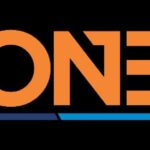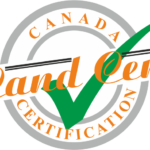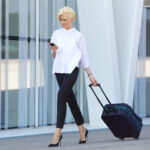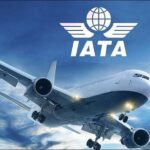Introducing Botswana
About Botswana
Easily one of best safari destinations in Africa, Botswana is a wild and dramatic land characterized not only by its bountiful wildlife, but also by its extraordinary scenery: from shimmering salt pans and diamond-rich deserts to raging rivers and fertile flood plains, the landscapes here come in many guises.
Nearly half of the country is given over to national parks, reserves and private concessions, which makes for an excellent safari experience. Botswana’s policy of favoring low-impact luxury tourism ensures that even the most famous game-viewing areas rarely feel crowded, while its population of just two million adds to the sense of wilderness.
The north of Botswana in particular offers superb wildlife-watching opportunities. It is home to the wondrous Okavango Delta – the largest inland delta in the world – where shimmering lagoons and fertile waterways are crammed with more than 400 species of bird. Away from the water zebras and giraffes amble across grass flats and flood plains, keeping an eye out for the numerous big predators that also reside here.
Northeast of Okavango is another jewel in Botswana’s crown: Chobe National Park, which has one of the largest concentrations of game anywhere in Africa. The reserve is particularly well known for its vast elephant herds, some 400-strong, which share this wild land with the likes of lions, cheetahs, hippos and many more.
It’s not only in conservation that Botswana is an African success story. Since gaining independence in 1966, it has achieved steady economic growth through good use of its agricultural potential and enviable diamond reserves.
It has not entirely escaped controversy – the l-IIV/AIDS pandemic and alleged maltreatment of the Kalahari Bushmen have caused international concern – but it remains a peaceful and stable nation of remarkable natural beauty and its developed infrastructure makes it much more accessible than some of its neighbors.
Language, Culture & History
History of Botswana
The first people to settle in Botswana were the San Bushmen, nomadic hunter-gatherers whose territories are also thought to have spanned present-day Namibia, Angola, South Africa, Zambia and Zimbabwe. Their influence is still evident in southern Africa, where these indigenous inhabitants eke out traditional lives as hunter-gatherer. Examples of their early rock art are also still visible across the region.
From the 17th century the San Bushmen started to come under pressure from migrating Bantu tribes, who had migrated from sub-Saharan Africa. A further series of migrations followed and by the 18th century these migrants were firmly established in the southern part of Botswana, and had established a powerful military state controlling hunting, cattle-breeding and copper mining.
The 19th century brought another period of upheaval, as inhabitants from the north of the continent, dislocated by slavery and the collapse of their local economies, moved to new territories.
British colonialists and Boer settlers then came along and vied for control of Botswana; the local rulers allied themselves with the British against the Boers, and Botswana was eventually brought under British protectorate control in 1890, remaining so until independence in 1966.
Popular Seretse Khama became the country’s first president – a position he held until his death in 1980 – and subsequent elections have remained peaceful and democratic.
In the late 1960s, diamonds were discovered in Botswana and became the primary driving factor for the country’s economic growth and independence. These riches have, unlike in other parts of Africa, helped the country become a veritable African success story.
During the 1980s and 1990s, Botswana was an important player in South Africa’s apartheid struggle, providing refuge for a number of guerrilla fighters and political exiles. Today, Botswana’s key domestic priority is to tackle the AIDS pandemic. Botswana’s infection rate, estimated at 25 per cent of the total population, is among the world’s highest.
For any persisting issues, under current president Ian Khama, first elected in 2008, Botswana continues to be a shining light of peaceful, non-racial, multi-party democracy on the African continent.
Did you know?
- The jwaneng diamond mine, located in the south of the country, is the world’s richest diamond mine.
- The word lekgoa, which locals often use to refer to foreigners, literally translates as ‘spat out by the sea’.
- The wife of Botswana’s first president, Seretse Khama, and mother of current president, Ian Khama, was an English woman named Ruth Williams.
Botswana Culture
Religion in Botswana
Christianity, Roman Catholic and indigenous beliefs. There are numerous small Zionist and Apostolic churches in rural villages, as well as United Reformed (Congregational and Methodist), Dutch Reformed, Lutheran, Methodist and Anglican churches, and predominantly expatriate Muslim, Quaker, Hindu and Bahai congregations in major towns.
Social Conventions in Botswana
As most people in Botswana follow their traditional pattern of life, visitors should be sensitive to customs which will inevitably be unfamiliar to them. Outside urban areas and safari destinations, people may well not be used to visitors. Casual clothing is acceptable and, in urban centres, normal courtesies should be observed.
Photography: Airports, official residences and defence establishments should not be photographed. Permission should be obtained to photograph local people.
Language in Botswana
English is the official language. Setswana is the national language, with minorities speaking Kalanga and Sekgalagadi.
Geography & weather
Weather and climate
Best time to visit
The landlocked Botswana is semi-arid and has two main seasons: wet and dry.
The dry season is from May to October. This is peak season for wildlife safari as animals are much easier to spot because the vegetation is less dense, and animals tend to congregate around waterholes. Temperatures are around 25°C (77°F), but they are at least 10 degrees cooler in the south. The Kalahari Desert, in the southwest, may experience cold and frosty early mornings and evenings too.
The wet season is from November to April. November can be very hot and humid, while January and February are the wettest months. Some safari lodges and camps are closed during this period too.
If you are visiting the Okavango Delta and Chobe National Park, the months from June to September are the best time.
Required clothing
Loose, natural fabrics are recommended, with wet-weather gear and warmer clothes according to the season and area visiting.
Geography
Botswana is landlocked, bordered to the south and east by South Africa, to the northeast by Zimbabwe and to the north and west by Namibia. It also touches Zambia just west of the Victoria Falls. The tableland of the Kalahari Desert covers the centre and south. The principal wildlife areas are the Okavango Delta to the northwest, the largest inland delta in the world, which includes the Moremi Game Reserve; Chobe National Park in the north, including Savute and the Linyanti Marshes; and Kgalagadi Transfrontier National Park in the far southwest, co-managed with South Africa.
The majority of the population lives in the southeast around Gaborone, Serowe and Kanye along the South African border. The vast arid sandveld of the Kalahari occupies much of central and western Botswana. The seasonal rains bring a considerable difference to the vegetation, especially in the Makgadikgadi Pans and the Okavango Delta.
Business Opportunities
Doing Business in Botswana
Lightweight suits should be worn.
Office Hours
Mon-Fri 0800-1700 April-October; 0730-1630 October-April. Government office hours: 0730-1630 all year round.
Economy
Diamond mining, tourism, financial services and livestock farming are key foreign exchange earners. Botswana is economically connected to South Africa and is a member of the Southern African Customs Union (SACU). It also hosts the Southern African Development Conference, which is the principal mechanism for economic cooperation.
Prudent management and the successful development of new mineral resources have afforded Botswana consistent economic growth at a rate of around 5% in recent years. The country has been seeking to reduce its economic dependence on diamonds and agricultural products, both of which are vulnerable to price fluctuations, and to increase its focus on high-revenue investment services and upmarket safari tourism. Unemployment is officially around 20%, but many citizens support themselves through subsistence agriculture.
The HIV/AIDS epidemic, which is extremely serious in Botswana and mainly afflicts the productive, young and middle-aged population, is starting to have a negative effect on the economy.
GDP
US$15.27 billion (2016).
Main exports
Diamonds, copper, nickel, beef and textiles.
Main imports
Food, machinery, electrical goods, vehicles and fuel.
Main trading partners
European Free Trade Association (EFTA); fellow members of the Southern African Customs Union (SACU).
Keeping in Touch in Botswana
Telephone
There are very few public phone boxes.
Mobile Phone
Roaming agreements exist with international mobile phone companies. Coverage is average.
Internet
Available in large cities and resorts.
Media
There are claims that there are government limits on ability to broadcast freely but, overall, Botswana welcomes public debate and freedom of expression, as its constitution dictates. State-run television did not appear until 2000 and radio still has more dominance as a medium. Printed media are mostly limited to major cities and towns.
Post
There are post offices in all towns and the larger villages. Airmail service to Europe takes from one to three weeks.
Post Office hours
Mon-Fri 0815-1245 and 1400-1600; Sat 0800-1100.
Plan your trip
Botswana’s Journey
Air Botswana (www.airbotswana.co.bw), flies into Gaborone from Harare (Zimbabwe), Cape Town (South Africa) and Lusaka (Zambia). The quickest route from the UK is to fly to Johannesburg with South African Airways (www.flysaa.com) or Virgin Atlantic (www.virgin–atlantic.com) and catch a connecting flight from there. South African Airways also runs direct flights to Johannesburg from the USA.
Airport Guides
Francistown Airport
Code FRW
LocationTelephoneAddress
Gaborone Sir Seretse Khama International Airport
Code
GBE
Location
The airport is 15km (9 miles) northwest of Gaborone.
TelephoneAddress
Maun International Airport
Code MUB
LocationTelephoneAddress
Selebi-Phikwe Airport
Code P KW
LocationTelephoneAddress
Flight times
From London – 14 hours (including stopover); New York -19 hours (including stopover).
Departure tax
None.
Travelling to Botswana by Rail
Botswana Railways (www.botswanarailways.co.bw) offers an overnight FrancistownGaborone-Lobatse service that has first class sleepers, business class seats, standard class seats and a buffet car. Departures take place daily, and tickets can be bought from the website. National Railways of Zimbabwe (www.nrz.co.zw) used to operate a weekly service between Botswana and Zimbabwe (Francistown-Bulawayo; journey time – 5 hours 30 minutes but this was suspended in 2016.
Driving to Botswana
Getting to Botswana by boat
Ferry operators
A car ferry operates across the Zambezi River to Zambia.
Staying there
Hotels
Botswana’s main urban centres – Gaborone, Francistown, Kasane and Maun – all have a number of hotels and motels which generally maintain a reasonable standard. The top-end hotels offer air conditioning, swimming pools and entertainment such as film screenings, live music and dance shows; there are also budget places with fairly basic amenities. Botswana Tourism Department (see Contact Addresses) lists accommodation options online.
Grading: Botswana operates a standard 5-star rating system for all hotels, lodges and camps.
While you’re there
Camping
There are campsites at the main national parks and game reserves. Grass fires should not be started, and all litter should be removed. The presence of dangerous animals makes it advisable to exercise extreme care. Visitors are not permitted to leave their vehicles in a national park or game reserve unless in a designated area.
Nightlife & Shopping
Shopping in Botswana
Woodcarvings, handcrafted jewellery, textiles and attractive basketry are recommended. The Okavango Delta villages of Etsha and Shorobe are particularly famous for Ngamiland-style baskets. Modern Bushman art and ostrich-eggshell jewellery can be browsed and purchased at DIKar, 40km (25 miles) north of Ghanzi. There also occasional exhibitions at the National Museum in Gaborone.
Shopping hours
Mon-Fri 0800-1800, Sat 0830-1300.
Nightlife in Botswana
Most people get up early in the morning, and even in the capital, Gaborone, nightlife is not very extensive. It’s limited to a few bars and restaurants, a cinema and a cultural centre which stages theatrical productions. Some bars host live music sessions at weekends. Despite its steady tourist traffic, Maun is even sleepier, with just a handful of restaurants, a small cinema and a clutch of places to grab a cold beer.
Meal & Beverages
Most of Botswana’s safari lodges and camps serve excellent international-style cuisine that incorporates local influences such as game meats or traditional maize or sorghum-based Botswanan staples.
Good restaurants and bars can be found in most major towns and cities, often in the hotels. In rural villages and less developed areas food is generally more basic, usually consisting of a stiff maize-based porridge (pap) with some form of stew. Goat, beef, chicken and river fish are all common sources of protein for locals.
There are plenty of locally grown vegetables and fruits available at local markets, including the interesting marula fruit and tasty local wild spinach. Watermelons are also believed to have originated in Botswana.
Specialities
Pap: A stiff, maize porridge, the main local staple.
Seswaa: Botswana’s national dish, a meat stew made with onions and peppers and served with pap.
Kalahari truffles: A desert species of mushroom with a rich earthy flavour.
Mopane worms: Large, protein-rich grubs, boiled, grilled or deep-fried and served as a side or snack.
Morogo: Wild spinach, often served as a side with pap and stews.
Vetkoek: A deep-fried dough ball similar to a savoury doughnut, often served with curried mince.
Serobe: Goat, sheep or cow intestines cooked until soft; trotters are sometimes also included.
Biltong: Seasoned and dried beef or game meat.
Dikgobe: A stodgy mixture of beans and maize or sorghum.
Bojalwa: An opaque, sorghum-based beer.
Tipping
A discretionary 5 to 10%. In many places, a service charge is automatically added. It is customary to tip the game guide and lodge staff while on safari.
Drinking age
18.
Getting Around
Air
Major areas of the country are linked by air. There are airports in Francistown, Ghanzi, Jwaneng, Kasane, Maun and Selebi-Phikwe. Air Botswana (www.airbotswana.co.bw) runs domestic flights from Francistown, Kasane and Maun to Gabarone.
Many visitors use charter companies based in Maun to fly to the various lodges in Botswana. These include Mack Air (www.mackair.co.bw), Kavango Air (www.kavangoair.com) and Kalahari Air Services (www.kalahariair.co.bw).
Road
Side of the road
Left
Road Quality
Botswana has good tarmac roads on major routes; generally roads range from tarmac to either gravel or sand tracks. Visitors should be careful as many drivers ignore safety rules. You should always carry reserve fuel, emergency supplies, and at least 20L of water on longer journeys. Make careful enquiries before setting out. Wildlife and stray livestock may pose a hazard.
Car Hire
Major international companies and local firms offer car hire in Gaborone, Francistown, Kasane and Maun. In many areas, you need 4-wheel drive vehicles.
Taxi
There is a taxi service in all major towns, and it’s generally safe. Make sure you agree prices before embarking on a journey.
Regulations
Speed limits are 120kph (75mph) outside built-up areas, and about 60kph (37mph) in built-up areas.
Documentation
To drive in Botswana, you need a valid national driving licence, which you can use for up to six months. If it’s not in English, an International Driving Permit is recommended.
Urban travel
Public transport within towns consists of share-taxis or minibus services operating at controlled flat fares. Exclusive use of taxis is sometimes available at a higher charge.
Rail
An overnight train runs daily from Francistown to Gaborone and Lobatse.
Before you go
Visa & Passport
| Other EU | Passport required Yes |
Return ticket required Yes |
Visa Required No |
| USA | Yes | Yes | No |
| Canadian | Yes | Yes | No |
| Australian | Yes | Yes | No |
| British | Yes | Yes | No |
Passports
To enter Botswana, a passport valid for at least six months is required by all nationals referred to in the chart above. Outgoing travel documents and sufficient funds are also required.
Visas
Visas are not required by all nationals referred to in the chart above for stays in Botswana of up to 90 days.
Visas are also not required by transit passengers, provided they are continuing their journey by the same or first connecting aircraft, and do not leave the airport.
Nationals not referred to in the chart above are advised to contact the high commission/embassy to check visa requirements.
A tourism levy of US$30 applies to all visitors except those from residents and citizens of the Southern African Development Community (SADC) member states. This can be paid on arrival by cash or debit/credit card.
Visa Note
Those nationals who do require a visa for Botswana must include a copy of their travel itinerary with their application, along with a letter of support from their intended host and return visa or residence permit from his/her country of residence.
Travelling with minors: As of 1 October 2016, those travelling with children under the age of 18 will need to supply an unabridged birth certificate showing the details of both parents. If the child is flying with one parent only, a parental consent affadavit signed by the absent parent will need to be produced. If the father is not named on the birth certificate, an affadavit will not need to be produced.
Types and Cost
Visitor visa: US$107.
Validity
Up to 90 days.
Application to
Consulate (or consular section at embassy or high commission).
Working days
Allow 21 working days for visa processing.
Extension of stay
If you wish to extend your stay beyond 90 days, you must contact the Department of Immigration to request an extension.
Our visa and passport information is updated regularly and is correct at the time of publishing,
We strongly recommend that you verify critical information unique to your trip with the relevant embassy before travel.
Embassies and tourist offices
Botswana High Commission in the UK
Telephone: +44 20 7647 1000
Website:
Address: , 6 Stratford Place, London, W1 C 1AY, Opening times:
Mon-Fri 0900-1700.
Embassy of the Republic of Botswana in the USA
Telephone: +1 202 244 4990.
Website: http://www.botswanaembassy.org
Address: NW, 1531-33 New Hampshire Avenue, Washington, DC, 20036, Opening times:
Mon, Wed and Fri 1000-1300 (enquiries); Mon-Thu 0900-1600 (visa drop off); Mon-Fri 1400-1600 (visa collection).
Healthcare
| Title Tetanus |
Special precautions |
| Typhoid | Yes |
| Hepatitis A | Yes |
| Yellow Fever | No* |
| Diphtheria | Sometimes |
| Rabies | Sometimes |
| Malaria | Yes |
*A yellow fever vaccination certificate is required from all travellers over one year of age travelling from infected areas.
Health Care
The dust and heat may cause problems for some people. Visitors should use sun protection, especially due to Botswana’s high altitude. The public health system is good. All main towns have chemists, and pharmaceutical supplies are readily available. Health insurance is essential.
Food and Drink
Tap water is considered safe to drink, although outside main cities and towns, visitors are advised to check first and sterilise water if in any doubt. Bottled water is available in most tourist centres. Milk is pasteurised, and dairy products, local meat poultry, seafood, fruit and vegetables are generally safe.
Other Risks
Vaccinations for tuberculosis and hepatitis B are sometimes recommended. Hepatitis C occurs. Bilharzia (schistosomiasis) is endemic; avoid swimming and paddling in fresh water. Tick-bite fever can be a problem when walking in the bush. It is advisable to wear loose-fitting clothes and to search the body for ticks. Rabies is present in animals. For those at high risk, vaccination before arrival should be considered. If you are bitten, seek medical advice without delay.
Holidays
Below are listed Public Holidays in Botswana
New Year’s Day
01 January 2020
Good Friday
10 April 2020
Easter Monday
13 April 2020
Labour Day
01 May 2020
Ascension Day
21 May 2020
Sir Seretse Khama Day
01 July 2020
President’s Day
20 July 2020
Botswana Day
30 September 2020
Christmas Day
25 December 2020
Duty free & Currency
Currency and Money
Currency information
Pula (BWP; symbol P) = 100 thebe. Notes are in denominations of P100, 50, 20 and 10. Coins are in denominations of P5, 2 and 1, and 50, 25, 10 and 5 thebe.
Credit cards
American Express, Diners Club, MasterCard and Visa are widely accepted. ATMs are available in most larger cities and towns.
ATM
ATMs are available in most larger cities and towns.
Travellers cheques
To avoid additional exchange rate charges, travellers are advised to take traveller’s cheques in US Dollars or Pounds Sterling. Traveller’s cheques are accepted in some banks in large cities but with a high surcharge.
Banking hours
Banks open 0800 and 0900, Mon-Sat, closing between 1615 and 1715 on weekdays and 1045 and 1200 on Saturdays.
Currency restrictions
There are no restrictions on the import of local or foreign currencies, provided declared on arrival. Export of local currency is limited to P50 and foreign currencies up to the amount declared on arrival.
Currency exchange
Money should be exchanged in banks at market rates. The main commercial banks include Bank of Baroda, Barclays Bank of Botswana, First National Bank, Stanbic Bank Botswana and Standard Chartered Bank with branches in major towns and villages. Owing to limited facilities in small villages, it is advisable to change money at the airport or in major towns, where credit card cash advances may also be available. There are also bureaux de changes at major border posts. Safari lodges accept payment in US dollars.
Botswana duty free
Overview
The following goods may be imported into Botswana without incurring customs duty:
- 200 cigarettes and 20 cigars and 250g of tobacco.
- 2L of wine and 1L of spirits.
- 50m1 of perfume and 250m1 of eau de toilette.
- Goods up to the value of R500 (South African Rand) from within the SACU zone (Lesotho, Namibia, South Africa and Swaziland) and to the value of R3,000 from outside the zone.
Tobacco and alcohol allowances are only applicable to travellers over 18 years old.
Banned Imports
Prohibited imports include firearms and ammunition, narcotics and pornography.
You may bring in small amounts of fresh food, but you require an import licence for larger amounts. Note that the import regulations on importing meat change regularly according to disease outbreaks in different countries.










